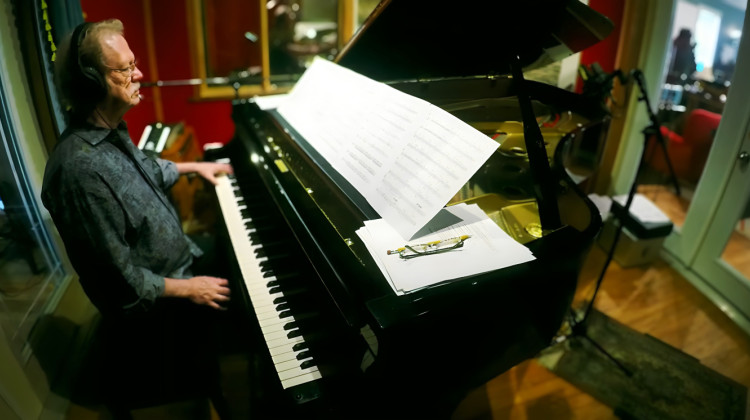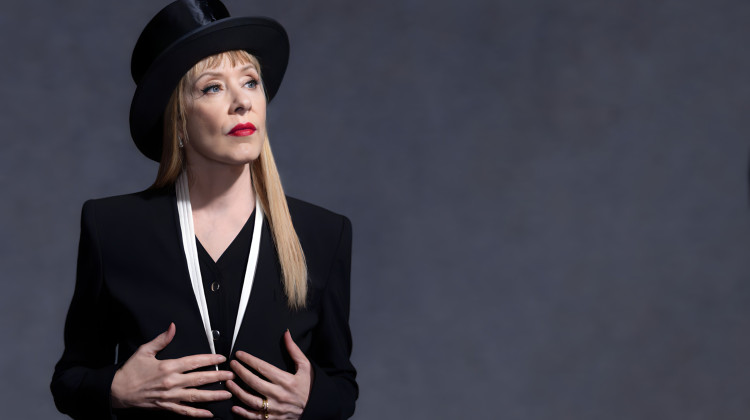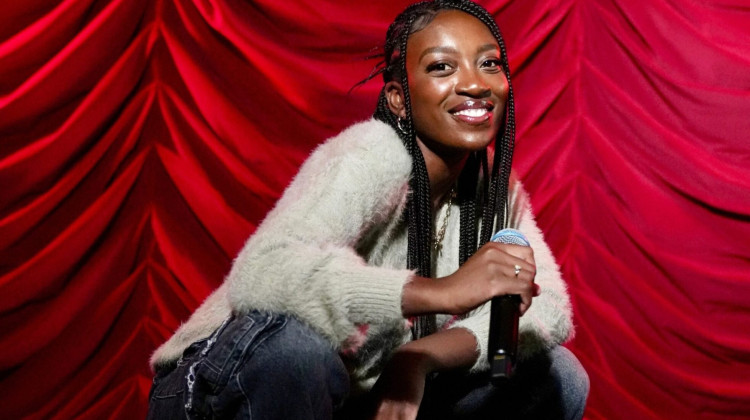High School dropout is not how you might expect to begin a conversation about a new examination of John F. Kennedy. But the man who made this new docuseries about Kennedy is no ordinary high school dropout, Ashton Gleckman grew up in Carmel, and before he decided not to finish school, he had recorded a music album, he launched a successful YouTube channel, and since then, he has composed a lot more music for film and got into making films himself. His eight-part series for the History Channel is simply entitled “Kennedy.” Ashton Gleckman spoke via Zoom with WFYI’s Ray Steele.
RAY STEELE: Ashton is 23 now, and I believe it was ten years ago when you started putting out music professionally. How did that happen when you're 13 years old?
ASHTON GLECKMAN: So, I started playing guitar when I was seven. And I basically fell in love with that. I grew up loving music, and everything from Pink Floyd, Steely Dan to just a huge range of music. And by the time I was 13, I had recorded my first CD in Nashville. And then all of a sudden it was 2014, and three critical films came out; The Imitation Game, Interstellar, and the Theory of Everything, all of which had masterpiece scores, in my opinion - musical scores. And those three films were the avenues for me falling in love with writing music for movies. So, I went full force into studying to be a film composer. And by the time I was 15, I was going out to New York City, and working on my first score for a documentary filmmaker. You know, first year in high school, I would go home every day after school and would sort of go into the studio until two or three in the morning, and then go to school sleepy, and hadn’t done my homework. And by the end of my second year, I went to my parents, and I basically said, I think it's time to go, I think it's time for me to really go full force into this, because I know I'm going to be doing it the rest of my life. And if I know that I don't want to waste two more years in high school.
STEELE: What was the family's reaction when you told them that? It sounds like they've always been supportive of you. But I could imagine back in the day, my parents saying, no, you're not dropping out of school, even if you have had the success?
GLECKMAN: Yeah, that's the one thing I really do have to give them credit for is that they were supportive of that decision. And they basically, not only were supportive of it, but I mean, they were they were like, We understand this is something that I think you have to do,
STEELE: Why choose President Kennedy for another documentary? And how did you plan on doing it differently than everybody else who has done one up until now?
GLECKMAN: Well, one of the things is I just got a little bit, I wouldn't use the word annoyed. I got a little bit frustrated with why all the documentaries about Kennedy were about the assassination. They were all about how many shooters there were. And they were about conspiracy theories. And they were about the umbrella man and the grassy knoll. And I just thought to myself, what about the 46 years before the assassination. And when I started really digging into his story, and looking at this, like incredible arc, you know, he went from being a privileged well-off kid sailing off Hyannisport, to all of a sudden he's fighting in World War Two in the Pacific. He comes back to the States basically skinny and scrawny, and with malaria, and he goes and canvasses the neighborhoods of Boston with a back brace on. So there's this sense of ambition, and it's very much so an American story. And I realized, you know what, let's do a documentary on Kennedy. But let's really try to focus on the coming of age, specifically coming of age into the president that we know.
STEELE: What do you hope people take away from this about Kennedy that maybe they didn't know before?
GLECKMAN: He's someone that was fighting in World War Two. He was at the Potsdam Conference, the San Francisco conference after the war as a as a newspaper journalist, he went to Berlin after World War Two, he was in the Oval Office when the Bay of Pigs and the Cuban missile crisis happened and the civil rights movement was at the doorstep. And so I hope people just take away the fact that this is, this is an amazing story. And also the fact that, you know, every man can make a difference, and everyone should try. That was Kennedy's big quote. And it says a lot about I think what each of us could do.
Ashton Gleckman from Carmel has a new eight-part docuseries called “Kennedy.” Check your local listings, and there’s also more information at AshtonGleckman.com.
 DONATE
DONATE







 Support WFYI. We can't do it without you.
Support WFYI. We can't do it without you.